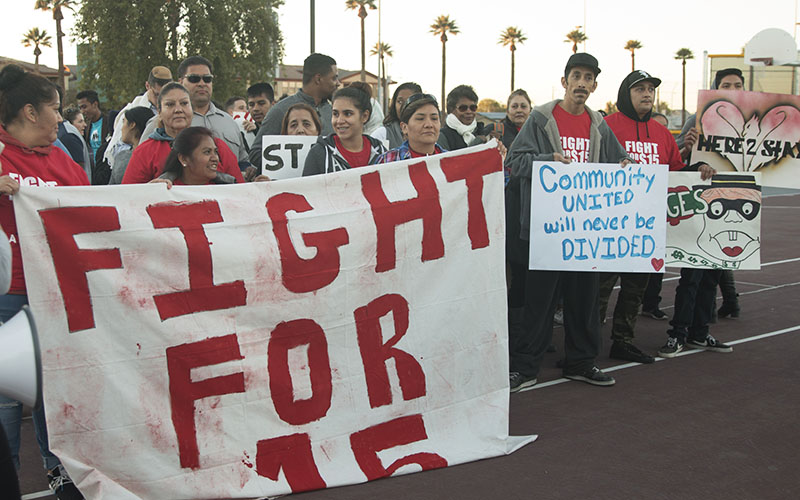
Marchers in a protest spearheaded by Living United for Change in Arizona voiced concerns about social, economic and racial injustices at a protest in downtown Phoenix on Nov. 29, 2016. (Photo by Claire M. Roney/Cronkite News)
PHOENIX – More than 100 people marched down Van Buren Street on Tuesday evening chanting: “This is what community looks like! This is what democracy looks like!”
It was billed as the Rise Up and Resist Hate March on Facebook, and was sponsored by the group LUCHA, Living United for Change in Arizona, a self-described grassroots advocacy and civil engagement organization that advocates for the state’s low-and moderate-income and minority communities.
But the march was was emblematic of a flurry of protests across the nation focusing on post-election worries about the economy and civil rights as president-elect Donald Trump approaches his inauguration.
“It’s a human rights walk,” Yenni Sanchez, a volunteer for LUCHA, said.
For Sanchez, a Mexican immigrant who came to the United States as a toddler and received a two-year temporary reprieve from deportation under a 2012 Obama executive order called Deferred Action for Childhood Arrivals, the protest was a way to engage civically and show solidarity for those fighting for civil rights.
But like other protesters across the nation, marchers at the Phoenix event expressed different worries and concerns about the future.
Mark Harbse, 59, worried about socio-economic impacts of a Trump presidency on middle-to-low income workers.
Those workers helped elect Trump, but Harbse feared their needs would be ignored.
Kathy Ortega, 52, a McDonald’s worker who said she’s the sole supporter for her disabled husband, three kids and grandkids, worried about possible mass deportations and future economic injustices.
“I am very proud and honored to be able to come out and walk with all these people trying to unite and be together for one purpose to all live a good life, just like everyone else,” Ortega said.